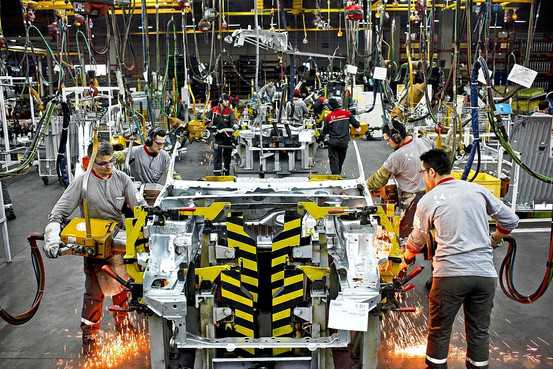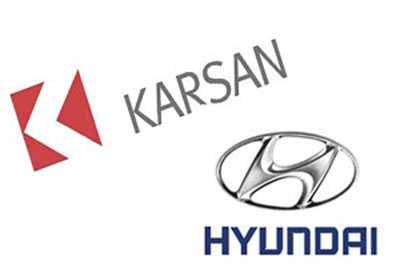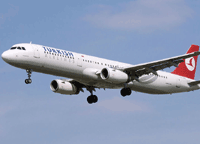Amid global worries over a Greek default, growing investor skittishness about emerging markets is a worrisome development for Turkey.
A comparative star in the sluggish global financial scene, Turkey in 2010 posted a Gross Domestic Product growth rate of 8.9 percent; growth this year is estimated at 5.5 percent, according to a recent expectations survey carried out by the Central Bank. By comparison, the European Union faces a projected 2011 growth rate of 1.8 percent.
Despite the sheen of economic health generated by the growth projections, Turkey is grappling with substantial economic challenges, especially unemployment. According to Turkstat, Turkey’s government statistics agency, unemployment decreased to 10.8 percent in March, down 2.9 percent from the same period in 2010. A recent report from the left-leaning Confederation of Progressive Trade Unions, however, argues that the real unemployment rate is much higher, 17.68 percent.
The reason for this discrepancy is that Turkstat calculates unemployment by surveying a representative sample of households. Individuals who are employable, but not seeking work or are working in the grey economy are not counted as unemployed. The grey economy is estimated at about half the national economy, according to Turkish officials.
Altug Ozgur, chief economist in Istanbul at BCG Partners, a New York-based consultancy firm, estimates that the age of much of Turkey’s population — about half of its 75 million residents are under 28 years old — means that “every year in order to keep the unemployment rate unchanged, the government has to create 700,000 new jobs.” That is no easy task. The government has plans for mega-infrastructure projects, but, overall, job-creation efforts are struggling to gain traction.
At the same time, recent data from Turkey’s Banking Regulation and Supervision Agency shows that consumer loans rose 47 percent on the year in April to 152.7 billion Turkish lira, or about $93.3 billion. Loan approval can be gained easily, even via SMS. Banks, though, underline that the number of non-performing loans in Turkey is low.
Easy access to credit points to another trouble spot for Turkey — a yawning current account deficit, or the difference between imports and exports of services and transfers. This year, the government expects the current account deficit to expand to about $42 billion or 5.4 percent of GDP.
Some analysts worry that Turkey’s economy is looking dangerously similar to when it went bust before, in 1994 and 2001.
Instead of domestic production, which could sop up the current account deficit, most of Turkey’s economic growth has come from short-term capital injected by foreign investors looking for greater returns than could be found in the unstable euro zone. As foreign capital flowed into Turkey, banks were able to extend more credit, and demand rose. While the short-term capital inflows were overheating the economy, consumer spending put Turkey in a position where it could not finance the current account deficit should the capital disappear, a problem that had contributed to previous busts.
“As Turkey is structurally a saving-deficit country, growth inevitably comes with widening current account deficit,” said Ozlem Derici, an economist at the Erste Group, an Austrian-run financial services company active in Central and Eastern Europe. At the end of 2010, Turkey’s proportion of domestic savings to GDP was about 12.6 percent.
To correct that imbalance and curb loan growth, the Central Bank in January raised reserve requirements for commercial banks, to make borrowing more expensive. To slow the inflow of foreign capital, the bank’s benchmark interest rate was cut to 6.25 percent, a record low.
The lira’s value tanked at 1.6446 to the dollar, a 26-month low, but consumer demand continues to grow. In April, the Central Bank raised its year-end inflation forecast to 6.9 percent from 5.9 percent. Most economists predict that the Central Bank will increase interest rates only toward the end of the year, when inflation is expected to rise more significantly.
“If the [Central Bank] retains a dovish tone in June, we believe it will have to react by tightening policy more significantly further down the line to keep exchange rate depreciation and inflation expectations under control,” Türk Ekonomi Bankası economist Selim Cakir wrote in a recent release.
The Central Bank declined to grant EurasiaNet.org an interview to discuss its monetary policy.
Controlling the current account deficit is believed to be a chief concern for the Bank, but some analysts caution that higher inflation and a large current account deficit might be tolerated as Turkey “goes for growth,” even if those growth figures are dependent on foreign money.
“Clearly, with the Greek crisis rumbling on this week, and with the growth and trade data on Turkey likely to continue to focus attention on the sustainability of Turkey’s growth model the focus will remain on the lira,” wrote Royal Bank of Scotland Head of Emerging Markets Research Timothy Ash in a June 28 email. “The market is likely to continue to focus on the idea that the Turkish economy is overheating, and the lira remains vulnerable.”
Editor’s note:
Justin Vela is a freelance reporter based in Istanbul.
via Turkey: How Long Before the Boom Turns to Bust? | EurasiaNet.org.







